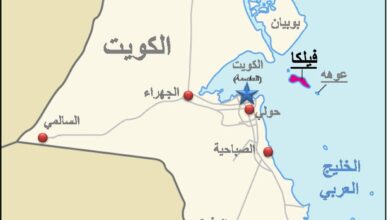Disaster looms as sewage overflows in Kuwait’s key farming zone

The suffering of dairy farms in Kuwait’s Sulaibiya agricultural area continues to worsen. Already reeling from an outbreak of foot-and-mouth disease that has infected over 3,000 cows since April 6, the area now faces a new health crisis—one that could escalate without urgent intervention.
Over the past two days, the Al-Rai daily says it has monitored the emergence of another environmental threat: a burst treated wastewater pipeline has caused stagnant water to accumulate between farms, forming foul-smelling lakes. These water pools have created ideal conditions for insects and disease to spread, posing additional risks to livestock and exacerbating the already fragile health situation.
In light of the escalating dangers, Abdul Hakeem Al-Ahmad, Chairman of the Fresh Dairy Producers Union, has issued an urgent appeal to the concerned authorities—particularly the Ministry of Public Works—to act swiftly. He emphasized the strategic role that Sulaibiya farms play in ensuring the daily supply of fresh dairy products and maintaining national food security.
Al-Ahmad warned that failing infrastructure—especially deteriorated roads and untreated sewage leaks—is now contributing to the spread of health hazards. The stagnant water pools, he noted, could become breeding grounds for mosquitoes, stray dogs, and other vectors that may introduce new diseases into the area and beyond.
He stressed that the compounded effect of environmental neglect and the ongoing livestock disease outbreak has led to a significant decline in milk production, directly impacting farmers and the broader dairy sector.
Calling for immediate repairs to both the road network and the wastewater infrastructure, Al-Ahmad cautioned: “If the situation is left unaddressed, the risk of epidemic disease spreading to nearby residential areas will grow—posing a serious threat to public health and the stability of Kuwait’s food production system.”













